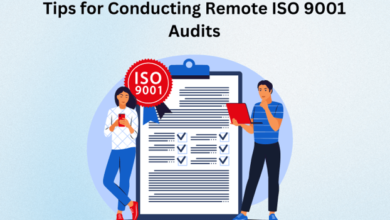Avoiding Common Errors in Bookkeeping: A Comprehensive Guide

The business world thrives on a strong financial foundation and bookkeeping remains an integral part of this foundation. Proper bookkeeping affords a clear snapshot of a business’s financial condition, helping in intelligent decision-making. However, it is an intricate process that can be riddled with errors, if not handled meticulously. Recognizing and steering clear of such errors could make all the difference. We invite you to delve into this comprehensive guide to discover how to bypass common errors in bookkeeping.
Understanding Bookkeeping Errors
Bookkeeping, intricate as it is, often leaves room for errors. Being aware of these errors is the first step to avoiding them.
Human Errors
Even the technologically advanced business world cannot eliminate human intervention. Data entry or calculation errors due to oversights or misunderstandings can occur.
Misclassification
Irregularities often creep into the process when transactions are incorrectly classified or recorded in the wrong account.
Ignoring Reconciliation
Reconciling financial statements can be laborious and, hence, ignored. However, this negligence can lead to accounting mistakes.
The point to note here is that these errors can be pernicious for your financial charter. They can impact everything from business insights to the making of informed decisions, and maintaining compliance.
How to Avoid Common Errors in Bookkeeping?
Being aware of potential pitfalls in bookkeeping is half the battle won. The other half is knowing how to sidestep them.
Invest in Training
Acquainting your team with the ins and outs of bookkeeping procedures can drastically reduce human errors. Regular training sessions ensure your staff is updated on the latest practices and regulations.
Use Technology
Technology-oriented solutions like cloud computing and automation can curb errors substantially. They automate tasks, reduce the chances of human errors, and help in correct classification and recording.
Regular Reconciliation
Reconciliation can be a daunting task, but it helps resolve any discrepancies timely, avoiding significant errors. Hence, regular reconciliation is advisable.
One of the practical solutions is to outsource bookkeeping services. Expert resources handling your books can significantly reduce errors and offer timely, accurate financial insights.
Specific Errors in Different Industries
Industry-specific errors can also creep into bookkeeping, causing unique challenges that require a tailored approach to solve. Understanding your industry’s needs and quirks, and aligning your bookkeeping procedures, accordingly, is crucial. Prioritizing this industry-specific perspective can give you a significant advantage in maintaining accurate financial records. It not only helps in preventing common errors in your sector but also equips you with insights for more strategic decision-making.
Real Estate Industry
Misclassification is a common error in the real estate industry where various transactions like renovation expenses and commissions, could be wrongly entered. The real estate sector involves a multitude of complex transactions, making it a fertile ground for bookkeeping errors. It is imperative to employ meticulous bookkeeping methods and develop an in-depth understanding of real estate transactions to ensure proper classification and eliminate misrepresentations in the books.
Retail Industry
The retail industry frequently faces inventory-related errors due to daily transactions. In a sector marked by considerable stock movements and sales every day, keeping accurate inventory records can be a daunting task. Consequently, it leads to errors such as obsolescence, shrinkage, or mismatches between physical and recorded inventory. Developing robust inventory management practices, employing modern bookkeeping tools, and performing regular audits can dramatically reduce these errors.
Hospitality Industry
In the hospitality industry, revenue recognition is often wrongly reported, leading to significant errors. The extensive range of services, from accommodations and dining to events and facilities, can complicate revenue tracking and recognition. It’s common for revenue from different services to get mixed up or reported in the wrong period. A keen understanding of the distinct revenue streams and implementing specific controls for each can mitigate such errors, ensuring accurate and compliant revenue recognition.
Each business and industry can have unique pitfalls and ensuring accuracy takes a firm grasp over these issues. Employing industry-focused resources like real estate bookkeeping services can be beneficial in avoiding common errors.
Conclusion
A comprehensive understanding helps avert common bookkeeping errors. Equally important is to invest in training and technology. Outsourcing bookkeeping to specialists can also be cogent for business health. Recognize your industry’s unique needs to minimize errors and ensure a robust financial foundation. As the saying goes, ‘An ounce of prevention is worth a pound of cure’; in bookkeeping too, avoiding errors is more efficient than rectifying them later!





